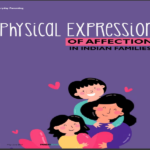“You are perfect in every way” – a powerful statement with a tall and lofty claim.
I came across this statement recently and many such versions do pop up regularly on people’s media feeds, whatsapp forwards and such other places. I have used the word “powerful” because I assume that’s the purpose of such quotes, to make you feel absolute and whole in your existence.
But, when I read it recently, this new age mantra of affirmation struck me like a serrated double- edged sword. While, it might prescribe itself to be empowering, I find it highly delusional in it’s good naturedness. And I’ll tell you why in the next few paragraphs.
However, just to have another perspective on it and not be biased to my own, I asked my very young daughter about her views on the same statement. She is quite an exuberant soul with undefined quirkiness but her philosophical insights way beyond her age have left me stunned at times. So, I asked her, “’You are perfect in every way’ do you think this statement is true or false when people say it to each other or themselves?” Her immediate response was, “Of course it’s not true! A lot of people tease others which is wrong. So how can you say to them that you are perfect?” She wasn’t done. She is going through a fashion designer phase at seven which made her add, “Also, some people don’t dress very nicely sometimes. So, they are not perfect too.”
I try to dissuade myself and my children from judging others especially on matters of personal choice. However, what surprised me was that her little mind went on to justify the fallacy of the statement, “You are perfect in every way” both at the physical and internal level.
Sharing my own thoughts forward, I’ll too start with the more unobvious, subtle and deeper aspect of you and I being far from perfect. We are conditioned humans soaked and dripping in layers of limitations and imperfections. We are constantly assaulted by six most primary and basal instincts of anger, envy, pride, lust, greed and ego in less or more amounts. There is no denying it. You might not see it evidently or even be aware of going through it because we choose “ignorance is bliss”. It is not uncommon to see people envious of their more successful siblings or relatives, or a successful person swell in pride over his underachieving kin. Or an employer unreasonably enraged at an employee over a hurt ego. Or the multiple scams and frauds done by well placed people motivated by greed. The list can go on.
So, the unequivocal point is that we are miles away from being perfect and quotes that say or imply otherwise (and there are many such in our times) are blinding us even more to our deep-rooted, intrinsic limitations. This false feel-good-factor about ourselves disempowers us much more than we care to realize.
Coming to the physical relevance of it, at which it is mostly directed, I find it falling short on that count too. We are all endowed with certain natural physical aspects which are beyond our control. We are born a certain way, be it appearance, skill sets, temperament or intelligence. All of us excel in one or more categories while may be deficient in others. That always leaves scope for improvement. Having deficiencies or imperfections is not a big deal but not knowing them can be.
Acknowledging the fact that we aren’t perfect and identifying them specifically gives us two choices – either to be ashamed of them and run from it or accept them and deal with it. And there is a huge difference between the two! There are certain aspects of our personality which are unalterable but there are many which can be worked upon. If I can see and acknowledge myself as overweight or too skinny, I might be motivated to work on my body and fitness. While if I fall for the notion that I am perfect, I might rob myself of the opportunity to change myself at all. Being in denial makes us only more delusional.
For the aspects that I cannot change, I still need to acknowledge and accept it. I might aspire flawless skin and glossy hair but I cannot have it being endowed with lesser than that. Yet, the most courage is in accepting the lesser version of me instead of a morphed narrative about myself and constantly battling against it in anxiety. When we choose to ignore or dismiss our flaws, we are subconsciously telling ourselves that we aren’t strong and courageous enough to handle it.
The whole concept of affirmations and positivism is great but making it unrealistic isn’t doing us any good. When there is only “yes” that we are feeding ourselves and our children, abiding by the “no use of NO or negative” theory, where are we heading with that? To a generation and a population that grows to be completely delusional about themselves, that fails at the first criticism, that falls at the first brickbat.
Let’s not teach ourselves and our children to deny or defend our imperfections, but to have the courage to deal with them, defy them and to rise despite them. Let us not take away the chance to change things that we can and we should.
–Radhika Mimani
Photo by Marlon Schmeiski from Pexels






